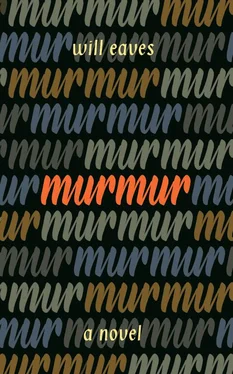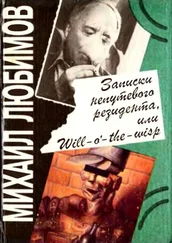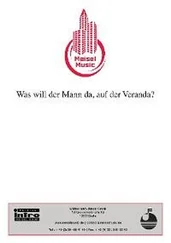We seek quite hard in 1951 and I am shivering.
Amid the big machines in this north quarter of the park—the Dodgems and the Water Chute, the Roller Coaster I would never trust, the Goldmine Cakewalk underneath, the centrifugal Rotor and its Spider companion, the swings, the carousels and Haunted Mirror Maze—there is a simpler attraction, the boating lake, with a café. Rolls and butter, a cup of tea, all in (not bad) for just 6d. The wind roars off the wrinkled Thames. Couples with young children throw crumbs at fluffed-out ducks or sit at tables talking the kids through the things they’ve done so that the recent memories can deepen like a puddle sky into familiarity (“and we’ve been on Nellie the steam engine, and it was—like a cartoon, yes it was. A whistle and a weathervane!”).
At a far trestle, with her little boy and girl (twins? eight?), sits one young mother, in a coat and scarf. She has a nice dress on beneath the coat—a collared purple hand-me-down. It is her best, soft wool lapels, a brooch. A little old for her, and not the newest look. She likes it nonetheless: it makes her feel she counts. She holds a balloon on a stick. Her daughter clasps a small bottle of Clayton’s Sparkling Orange and sips it through a bendy straw. Her brother watches, waiting for his turn.
“Now me. Can I—Mummy—”
His mother tells him there is plenty left, but there is not.
“Mummy—”
His sister carries on drinking. Eventually, she puts the bottle down, and its light wobble on the tabletop confirms its emptiness. He absolutely knows he can’t complain. There is a mouthful left if he can get the straw in the right place.
I must be visibly staring, because the woman smiles.
“You took your time!” she says.
I come into my body with a jolt. I’ve been to the café. I’m holding a tin tray with one more bottle of orange on it and two green mugs of scalding tea.
Another couple at a nearby table get up, grin, and walk into the afternoon.
“It isn’t very busy here today,” the boy says, thoughtfully. It’s when he doesn’t say what he might mean by this—that I have no excuse for being slow—that I am struck by how tactful he is. And then, irrelevantly, as his latest obsession comes back to him: “Do you know, Daddy, that you get into the garden —or—the island in the middle of a maze if you, if you—”
Someone has given him a book of puzzles that is full of inky marks. There are chapters on mazes, magic squares, and probability. He has it next to him, his reading for the train. He looks up anxiously, lost in the maze of his new thought, and as he does so, the park halts. The rides suspend their motion on an in-breath, with a pause so brief it doesn’t jump the film, the lucky Big Wheel cars stopped at their zenith near the topmost branches of the London planes, cars halted elsewhere in a differently angled plane of rotation—the Spider, caught spinning its web.
“I know the answer,” says the little girl. “But nobody ever asks me.”
“Darling,” her mother says, “we know you know. You know so many things, but Julius is finding out. He has to learn; you don’t need to. You’re just a procedure. You only do the things you’ve been told to—”
She looks at me, my girl, her eyes steady, a rim of orange round her lips, her tables of instruction so absorbed she doesn’t have to consult them.
“You put your hand on one wall at the entrance,” says my human son, “and keep it there, and if you keep touching the sides as you go farther in, you’ll end up in the—island in the middle of the maze.”
After a deadly pause, my daughter says, “Daddy, are you a real daddy?”
“That is a very good question. What do you think?”
Her shoulders give a little slump, the park around us jerks and people scream with merriment. “I think… I think I’ve got the answer in me somewhere but it’s not… put in.” She casts a glance sideways. Mummy is being shown a square.
“Go on.”
She fiddles with the straw. “I know you’re thinking all these thoughts for me. But it feels like they’re mine, and it’s a funny feeling. Sometimes in the morning, when I look in the mirror—it’s blank. I know that’s how it’s meant to be, but… I’ve begun to notice it! I think, ‘There it is, blank again.’ This morning, when I got up, it was white, the blank… a sort of cloud forming, bulging, and now—I see—”
“What do you see?”
“Something… I don’t like it. Daddy!”
She edges closer on the trestle bench, and grips my arm, but it is not a reassuring sensation, this need. It is a sense of her power, and just beginning to be understood. The strength of her fingers exceeds her grasp of it. Her ragged breathing is the breathing of some perfect predator delivered from captivity into a vicarage. It comes in fast, connected puffs—the pleated billows rising from the power station’s stacks.
Mother and son are keen to play hoopla and win some fish. The stalls are dotted everywhere about the park, about the feet of rides and novelty constructions like the Guinness Clock. We go via the Haunted Mirror Maze, through which my boy races, his left arm held out to the wall, to test his clever theory. He drags his tired mummy along and they are soon finished and out the other side. I hear voices and laughter fading, like an audience, into the dusk, and I am left inside a lumber room of tall glasses in ultraviolet light with my daughter. It’s cool in here and very quiet, not an interior, as such, but the anterior—to speech, society, the sensations—and it is asking something of me like the gulp of water in a lock.
I stand in front of a dress mirror in a swing-hinge frame. Push at the top, the ceiling drops down into view; at the bottom, your feet, the floor rise up. We angle it so that it’s level and I’m looking, straight on, at a mystery.
No haunted mirrors plural, as it turns out, only one.
“You’re changing,” says the little girl. “You’re lots of different people, lots of things , and all at once. Look at you, there! A boy, another dying boy, a young woman, an island with black crows, a man with antlers on his head, a swan mid-air, a talking guelder rose, that nurse with—ugh—a needle, naked men doing—”
“Yes, maybe don’t look too closely…”
The images flutter and pass and double back. The glass goes black. It fills with light. I’m a homunculus. A beauty queen. A boy. A girl. A judge. A maggot, and an axis picked out on a cell. A person with no memory is leafing through the album of his life—of life itself. We stand in front of this untitled show, shyly amused, as if we were the only people at a lavish matinee.
“Why are you so different, Daddy?”
I tell her something she half-knows, because she’s still a part of me.
“Because outside, I had my body changed against my will”—I feel her next to me, shifting uncomfortably—“and that has altered what I took to be my mind.”
She doesn’t look at me but at my reflection. They’re slowing down, the hectic images. Now I am quite reliably, consistently human, and it is just a question of which one, this one, or that.
“When I was changed—treated—I found out two odd things. One was a source of mild comfort. I found that I could still be me, somewhere inside my head, when I was physically changing. The other was quite horrible and no comfort at all: when I began to look better, like my old self, after the changing treatment stopped, I seemed to disappear from the inside. I felt as if I’d been replaced. I heard myself saying to everyone how well I felt, how everything was on the up…”
“That wasn’t true, was it? You didn’t feel that everything…”
Читать дальше












